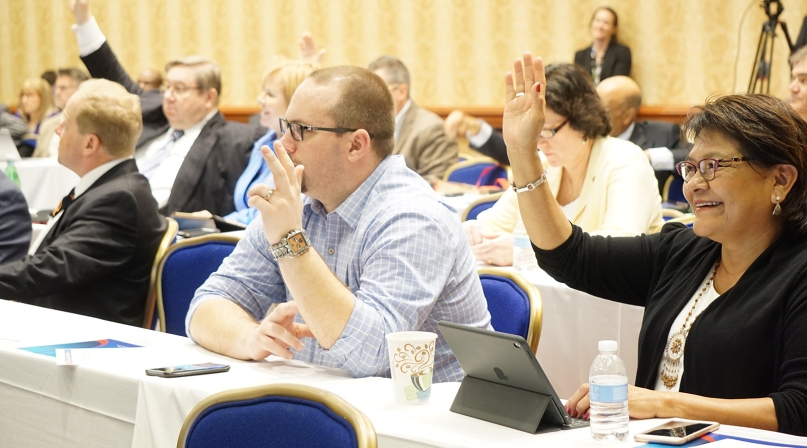Counties work to update local tech systems at Technology Innovation Symposium
Upcoming Events
Related News

Members of the tech industry met with county officials to help them update and protect their online presence on Friday at the first day of the NACo Legislative Conference. Officials discussed everything from cybersecurity threats and terrorism, to social media and AirBnB.
As more and more business is done and stored online, it is more important than ever to protect your data. Bill Wright, director of government affairs and senior counsel at Symantec, told the group that the public sector is especially at risk for cybercrime, as government officials rank fourth among reported cyber attacks in the past year.
IT experts have seen a growing dominance of crypto-ransomware in recent years and expect criminals will next move ransomware from computers to Internet of Things devices, such as your AppleTV or refrigerator.
“Ransomware has evolved from an annoyance to a serious threat,” Wright said. “If you see something that says ‘click here to watch Justin Bieber get punched in the face’ you can't do it. Tempting as it is, even for a guy like me, you just can't click it.”
While technology can be a source of threat, it can also subdue serious threats. Detective Sergeant Ray Cerreira of the Santa Clara Police Department told the group how his police department created a mobile app for undercover cops to covertly send pictures from the field to their command post. He explained that this technology has been especially helpful at large public events, such as at the Super Bowl this past year.
The rapid spread of information can be very useful, but disastrous when used incorrectly. Many counties don’t put enough focus on their social media presence or do not have a large enough budget to monitor all social media channels, Jake Williams, manager of strategic snitiatives at StateScoop, told the group. Williams also warned that it has become too easy to spread misinformation on social media and that counties would be wise to monitor information circulating online about their communities.
In the past year, many communities have grappled with the growing shared economy and the regulatory challenges that come with it. Shared economy services such as AirBnB, Uber and EatWith draw in new users with a simple registration process, far easier than registering a new business with the government, Tim Woodberry, director of government affairs, Accela, explained.
Woodberry added that “things like EatWith straddle the line between friends getting together and an unlicensed restaurant.” While each county handles the issue differently, he suggested that simplifying the government licensing process would improve local compliance rates.


